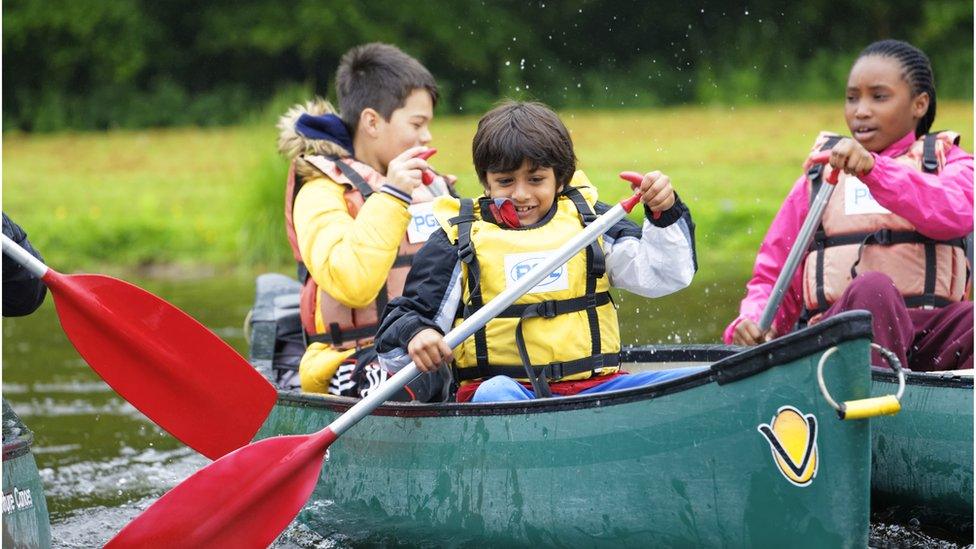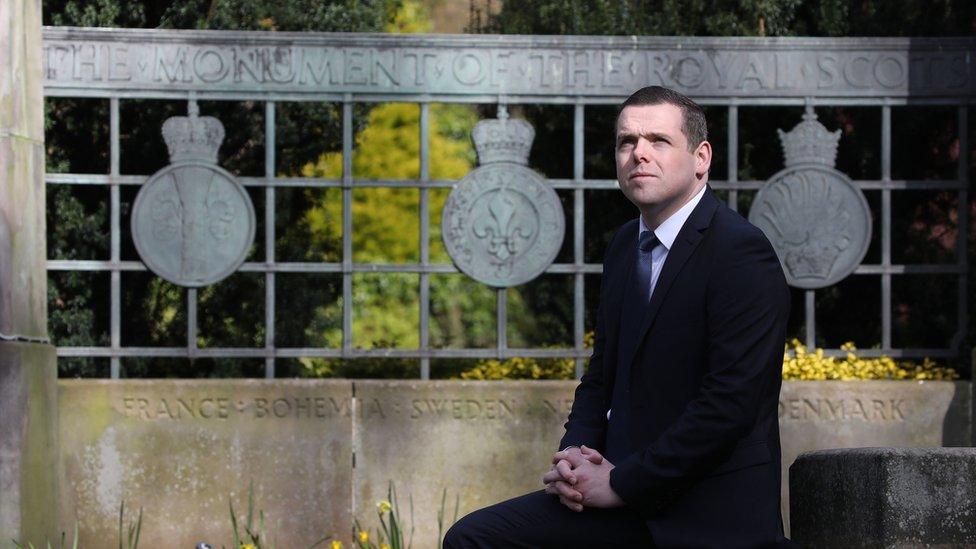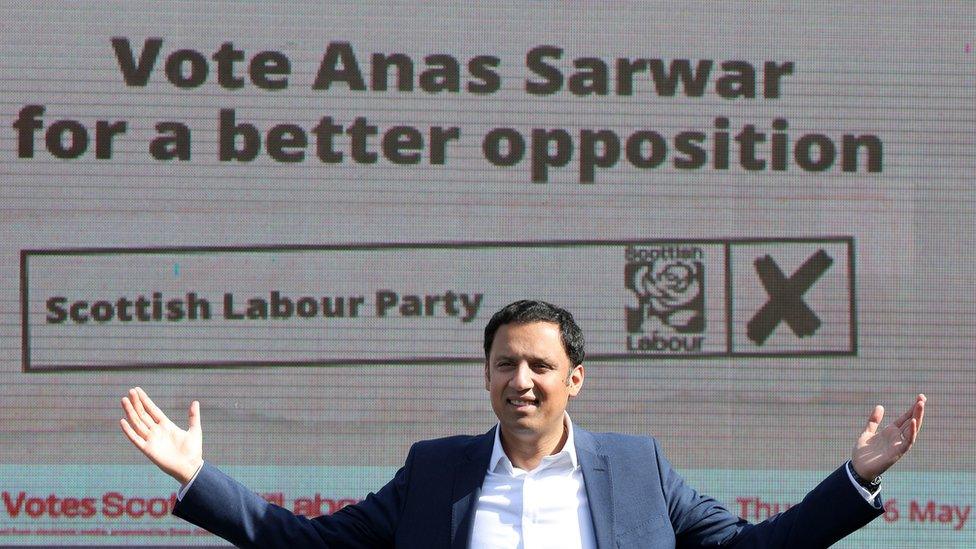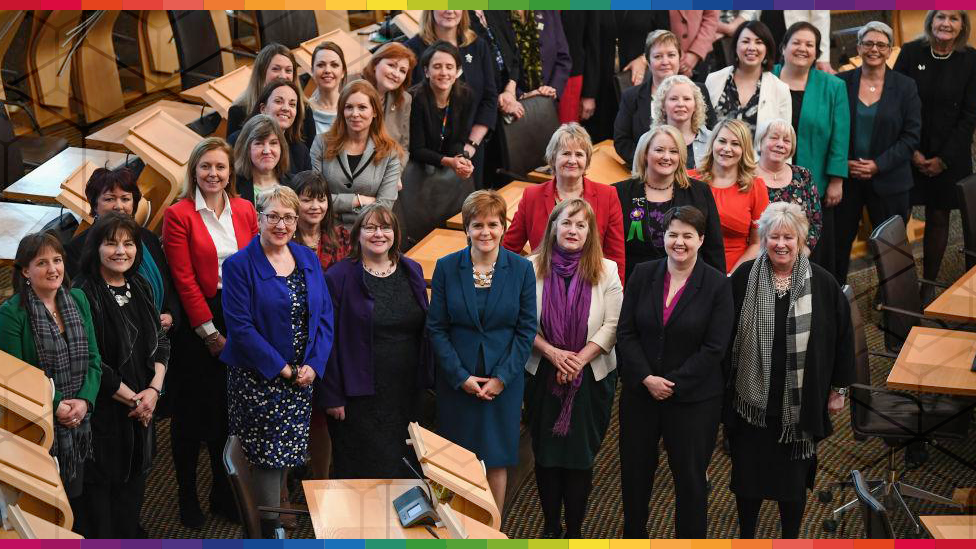Greens call for residential school trip guarantee
- Published

The Greens and SNP have both promised greater access to school trips
The Scottish Greens have said they want to guarantee every school pupil at least one residential trip.
The party said pupils have missed out during the pandemic, and called for a support fund to ensure low-income families do not miss out.
Meanwhile, John Swinney promised the SNP would exempt such families from paying for school trips.
The Holyrood election campaign has restarted after being paused following the Duke of Edinburgh's death.
It comes ahead of a second televised debate involving the larger parties on STV.
'Exclusion' due to costs
The Scottish Greens said that pupils normally experience a week-long trip to an outdoor education centre in Primary 7 - but these have been on hold due to the Covid crisis.
They said "every effort" should be made for pupils to catch up on lost opportunities.
The party's education spokesperson Ross Greer said: "Even before Covid many children were being excluded from this experience, due to its costs.
"As well as establishing a right for every child to experience at least one trip in each of primary and secondary school, the Greens would set up a fund to help families on lower income cover the myriad costs which come with week-long residentials."
Elsewhere in the election campaign, Mr Swinney said the SNP would end the practice of school pupils paying for materials for practical subjects like music and home economics.
It was part of a number of measures aimed at cutting down on the cost of the school day, he said, including ensuring every school pupil could take part fully in school trips.
He said: "We know that some families are sacrificing essentials like heating, food and rent payments so that their children can participate fully at school. This is simply unacceptable."
Scottish Conservative leader Douglas Ross made a series of manifesto pledges to support military personnel including an Armed Forces and Veterans Bill.

Mr Ross made his statement during a visit to the Royal Scots Monument in Edinburgh
The party said it would give serving and former military personnel, and their families, "guaranteed access" to education, jobs, healthcare and property.
Mr Ross said: "Too many veterans and families are failed, and their sacrifices go unrecognised. While many thrive and prosper after their military service, some end up homeless, struggle to get medical care or some even become trapped in a cycle of reoffending."

SCOTLAND'S ELECTION: THE BASICS
What's happening? On 6 May, people across Scotland will vote to elect 129 Members of the Scottish Parliament (MSPs). The party that wins the most seats will form the government. Find out more here.
What powers do they have? MSPs pass laws on aspects of life in Scotland such as health, education and transport - and have some powers over tax and welfare benefits.
Who can vote? Anyone who lives in Scotland, is registered to vote and aged 16 or over on 6 May is eligible. You can register to vote online, external.

Scottish Liberal Democrat leader Willie Rennie discussed switching one million homes from mains gas to "climate-friendly heating" by 2030.
He said: "We must take action now to improve homes and make them greener and warmer. Work on this will create jobs, cut bills and tackle the climate emergency."

Anas Sarwar made an appearance in Edinburgh for the launch of the party's ad van campaign
The Scottish Labour leader Anas Sarwar's focus was the launch of an ad van campaign, encouraging voters to use their second vote to support his party.
He said if the Scottish Conservatives returned as the main opposition in Holyrood, the parliament would be dominated by "arguments of the past".
"We need a parliament focused on our national recovery from the pandemic," he added.

POLICIES: Who should I vote for?
CANDIDATES: Who can I vote for in my area?
PODLITICAL: Updates from the campaign

Related topics
- Published9 April 2021

- Published22 April 2021
